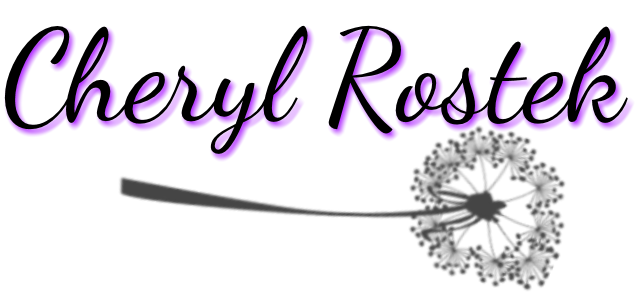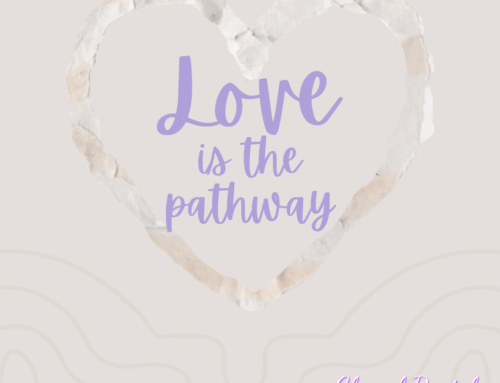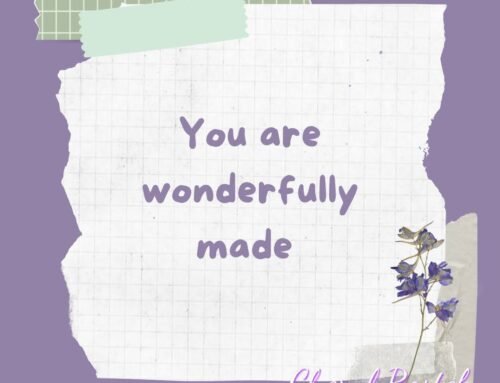I am on a journey to greater self-awareness. My cancer diagnosis shook this loose as I read that some of my personality traits could be facilitating cancer growth. Furthermore, my diagnosis shoved my mortality in my face precipitating a spiritual deepening. I am learning that (though I’ve down-played or down-right ignored them) symptoms of brain injury from brain cancer (and treatments) have changed my life.
As I learn about my personality through ennaegram, I learn that my personality feels it is limitless. We are over-achievers. The sting in this is that we lose a sense of what we value, what we are trying to achieve. Furthermore we are good at reading others expectations and performing, over the top performing, to exceed those expectations. We can satisfy a wide diversity of expectations depending on who is surrounding us at any given time… At the cost of losing sight of what really matters to…US.
Ooo it hurt to read this, surely not me? Then as I let it sink in…. Yup me. I’m on the journey of shaking off the expectations of others that I’ve been so effective and capable of achieving. I’m on the journey of discovering what truly matter to me, what*my* passions are. Where *I* want to spend my precious energy.
This is so pertinent because I used to have an apparent abundance of energy (I was “limitless”!). My personality type is driven, focused, goal-attaining and high energy.
I find myself post brain injury trying to resume life in that high energy fashion (this is particularly true because my personality struggles to find personal value in simply being, value is found in doing—- and not just doing, but winning in what I do). This did not used to exhaust me (or I chose not to acknowledge the exhaustion), but trying to always win, to never fail, to be the best is exhausting.
Today is the day after the kids’ church concert, a birthday nail party for my mother-in-law, helping my daughter pack for an in promptu trip, and then a birthday celebration at a noisy restaurant.
I feel wiped, not a sleepy tired kind of wiped (and my body’s not particularly tired) but an exhaustion in my head … I’m so tired and by now I know it’s gonna a couple days to recoup. My husband asks at time like these “did you sleep okay?”. And I am learning I need to find a better way of describing what’s going on for me, because yes, (as long as the kids sleep) I always sleep well.
My mom is well versed in brain injury fatigue. My dad has had numerous brain surgeries over the past 30 years due to a benign brain tumour and for as long as I can remember, battles brain injury fatigue. My mom has educated herself on this topic and can personally speak to the experience of what brain injury fatigue means. Growing up I too had a secondhand experience with what brain fatigue can look like: avoiding restaurants at prime times, limiting time at family gatherings, having to strategically plan my piano practicing as a kid to not disrupt Dad’s rest. But even with these experiences and mom’s awareness of what was going on I didn’t truly understand my own brain injury fatigue until now. And I think I’ve been in denial with how dramatically it is affecting me. (Remember I like to perceive myself as limitless.) People are starting to ask me if I’m going to go back to work. And immediately I start making plans in my mind for when and how this might play out. However, when I step back I see I have not truly been acknowledging my reality. This means that I’ve been unable to educate my husband, my family, my close friends and my physicians about what I have been experiencing.
This tired day after overload I decide I need to educate myself on what drives my increased fatigue, to be self aware, because I absolutely cannot keep up the facade anymore. I am not who I used to be. This hurts, but I am confident the pain of this process will drive me deeper to my core, my God given passions, gifts and talents. And I am confident this will strengthen my relationships and poise me to become a more loving, passionate, emotionally assessable wife, mother, daughter, friend. So I press in.
What I read today describes so much of what I haven’t been able to put to words. I feel it is valuable to educate those I care for about what I am experiencing as I am learning my own…… limitations.
I read a couple articles in which I saw myself so clearly. Reading these was a relief because finally I can say “that’s me!” and have words to describe what life looks like for me.
Below I will share about my experience. I will take much from the following 2 resources and encourage anyone interested in understanding my situation and brain injury and brain injury fatigue in more depth to read them in their entirety (they are brief and easy to read)
From these resources I was able to see that my choices allow me to manage my fatigue. This doesn’t eliminate it, and indeed I’ve already employed many of these measures; but by naming what I’m experiencing helps me to embrace even better coping strategies.
Firstly, I am coming to see that I usually appear “normal”. My deficits are NOT readily apparent. I work hard to compensate for them or overcome them. It took me awhile to realize that people didn’t realize just how tired I was, then when I did realize they didn’t know I quietly tucked that information in my back-pocket (not wanting to draw attention to my decreased abilities.)
The one resource states: “The information aims to help you, your family and friends to understand your fatigue and how it affects you….In order to cope with fatigue you must first be able to recognise it”
I read this and realized I need to become an active student and advocate of my condition; not a passive, inattentive by-stander.
“So how do you know when you are getting fatigued or fatigue is starting to build up?”
I’ve begun to learn that what I previously feared were symptoms of my cancer returning are truly symptoms of fatigue
“● losing concentration/attention” (for me— having to work extra hard to mentally focus on what I’m doing or need to do**)
“● eyes feeling heavy, and my eyesight not focusing properly
● head feeling ‘fuzzy’
tension Headaches
● getting irritable
● limbs feeling heavy”
It felt good to read in black and white:
“Often [fatigue] can creep up” So I need to learn what triggers my fatigue so I’m not blindsided, so I can manage and cope with it.
In the following quote I’ve underlined the ones most pertinent to me
“Things that trigger fatigue will be different for everyone. Some examples of activities reported to be more tiring following a brain injury include: ● working at a computer ● dealing with paperwork/correspondence ● being in a busy environment such as a shopping centre ● concentrating on one conversation in a noisy place like a pub ● driving and catching public transport … it is likely that certain activities are more tiring for you; what are these?”
Its described that after a brain injury the brain filter no longer works properly leading to sensory overload. Where a healthy-brain would strategically ignore non-important stimuli, the brain injured brain takes it all in leading to over-stimulation, also called flooding. Another article highlights about sensory overload post- brain injury(my personal notations in parentheses).:
“If it seems like your sense of touch, taste, smell, hearing, or vision is extra sensitive or heightened after your brain injury, it’s not your imagination….
-Sounds that you barely noticed before are alarming and startle you. (**I hear small noises and see things like flickering lights more acutely — and irritatingly–**)
-It feels like you have megaphones in your ears. (Yes! I am teaching my 6 year old not to shout or even talk loudly into my ears because I cannot handle it)
-Background sounds and stimulating environments become overwhelming. (parties are no longer enjoyable)
-Fluorescent and bright lights give you headaches. (**I don’t necessarily get headaches but they make me feel ‘squirelly’ and make it difficult to focus**)
-Large gatherings of people feel overwhelming. (ABSOLUTELY…I’ve finally gotten to the point where at least they don’t usually cause anxiety anymore)
sights and sounds that didn’t bother you before, may now trigger anxiety and the fight-or-flight response where your whole being feels threatened and out of control. It can be very taxing, physically and mentally.”
I’ve never liked busy shopping centers (does anyone?!) but now they exhaust me so I only go at quieter times of the day/week. As for concentration on conversations in a busy place: Just last week I felt like my Dad when I was out for a small Christmas gathering with girlfriends at a restaurant. What I mean is that being in the restaurant with a bunch of conversations in the background, trying to engage in the conversation with my girlfriends, trying to figure out what I wanted to order, was exhausting. It saddened me that this occasion that was supposed to be celebratory felt so draining. But interestingly (happily) I realized that as the restaurant started to quiet down my energy level increased and I could enjoy myself. Trying to have a conversation with so many other stimuli around was an (exhausting) mental battle. If its too loud or chaotic my head simply spins. If it’s a touch loud and not too chaotic and I’m well rested then I can enjoy the celebration but know that the following day I’ll be tired. I realize now that I need to decide how valuable such an outing is- because it’s an energy zapper. (I kinda feel like a hearing-impaired 80 year old in this capacity…my definition of a good celebration has markedly changed!) It was on my 36th birthday (a year ago) that I wanted to have a big bash to celebrate my survivorship and birthday. So we had a bunch of people over like we used to do before we had kids. After that party I realized that was no longer the type of party I enjoyed. Reading these articles brings greater clarity to the matter.
This article helped me to more clearly see what was going on when I flew by myself last year. I was shocked that flying from little Abbotsford airport to Calgary Calgary
Furthermore, the article highlights these points (emphasis mine!!):
“What can you do? ● Be realistic in your planning – pacing activities to avoid the boom-bust cycle. ● If you don’t achieve an activity try to reschedule it for when you are not fatigued. ● Try not to brood on things you haven’t achieved. Notice when you have done things well and celebrate these achievements. ● Be aware of and acknowledge your feelings and emotions, but try not to dwell on them. ● Plan time in your schedule to do pleasurable activities that will make you feel good about yourself. ● Acknowledge that you may not be able to do as much as you did previously.”
And: “ to Limit exposure to avoid sensory overload:
– Avoid crowds and chaotic places where there are a lot of stimuli, like shopping malls.
– Shop in smaller, quieter stores when possible.
– Eat out in restaurants when they are quieter, in between regular meal times.
– Hold conversations in a quiet place.
– Ask people to please speak one at a time. Explain that you’d really like to hear what everyone has to say but you can only hear one person at a time.
-Limit your exposure to noisy stores and loud situations like sporting events, the movie theatre and children’s school activities.”
At the beginning of Kindergarten I thought I would volunteer in Rayna’s classroom/field trips since I was at home full time. It quickly became apparent that that would not even remotely be feasible. I now rarely attend any fieldtrip, this article takes away the guilt of this!
The article further suggests “working within your available resources. It is important to plan when to take rest breaks during the day. Resting requires going somewhere quiet and sitting or lying down for a short period. It is better to take breaks often rather than having one long break when fatigue hits you … Relaxation can…help improve energy levels, leaving you feeling refreshed and making you feel more mentally alert, thus making the most of your resources. People with fatigue are advised to take regular breaks.”
Naturally, I try to push through my fatigue (because, quite honestly, resting feels boring) but I am finding much value in incorporating scheduled relaxation and rests. I realize that running near empty is much less efficient than stopping to fill my tank through out the day (this has been hard to realize since my battery drain is not linear, which is why it’s so important to be aware of when the drain is starting because my battery is like a crappy cellphone battery that goes from 30% right to 0% and shuts down. So I fatigue easier, but also once fatigued my capacity to manage irritability (I have 3 young kids!) is much worse than it ever was before.
“Following brain injury you may need more mental effort to perform a task and you may experience difficulty sustaining this effort over time. Some people have described reaching a point at which their brain ‘shuts off’. When experiencing ‘mental fatigue’ people describe being unable to think clearly and have difficulty concentrating. It may be that cognitive difficulties resulting from your brain injury may be more noticeable when you get fatigued. (YES, this is exactly it) Everyone tends to become forgetful and make more mistakes when they feel tired. Therefore, making best use of your thinking resources through applying strategies may be a way to make fewer mistakes and make things take less effort.”
Like making lists and writing everything down, which I already was fond of doing and post-diagnosis ramped it up.
Also, this article further recommends meditation. My counselor recommended meditation to cope with anxiety. I find it extremely helpful, which after reading this article makes even more sense!
Finally, its apparent that while I am cognitively intact my surroundings can dramatically limit my ability to perform cognitive tasks. It is recommended to “do cognitive work when your environment is quiet. Eliminate as many distractions and interruptions as possible.” On reflection, I realize this is the only type of environment where I can truly do cognitive work, if I want to think clearly on something I deem important I cannot have noise around or busy visual stuff going on in the background.
Reading these articles I see why I feel “like myself” in quiet adult environments when I’ve had adequate sleep. Conversely I begin to see why my kids exhaust me (more than the average parent). And after reading this the thought of working as a pharmacist in a big box store (fluorescent lights, visual commotion, a variety of noise: children screaming/crying, overhead pages, a need to be accurate in my work – on a computer screen– , multi-tasking: determining if prescription is appropriate, checking prescriptions for accuracy, talking to patients, fielding phone calls, answering questions from my assistants, corresponding with physicians, having patients complain because I’m too slow…) well yikes the answer to if I plan to go back to work soon simply has to be — there is much more to figure out before that ever happens!
It feels good, though to have a greater understanding of myself to help make the best choices with my time and energy. This is very valuable. I am grateful for this breath in my lungs and, deep breath, acknowledge that I am limited; but, optimistically, in knowing my limitations I am empowered to keep pressing in to living my fullest life!
References:
The Road back to you, by Ian Cron & Suzanne Stabile
https://www.braininjury-explanation.com/consequences/invisible-consequences/overstimulation-floodinghttps://www.braininjury-explanation.com/consequences/invisible-consequences/overstimulation-flooding








